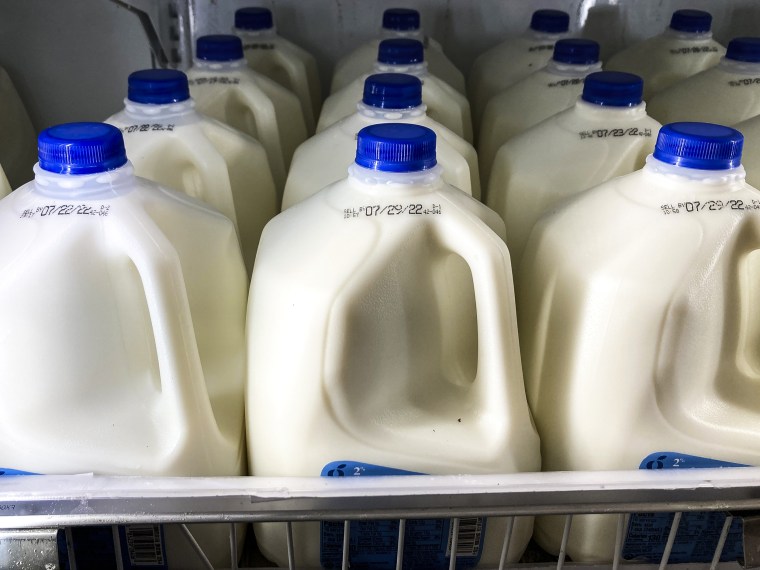The Food and Drug Administration said Thursday that traces of the bird flu virus have been found in 1 in 5 samples of pasteurized milk, providing a more detailed picture of how much of the milk supply has been affected.
The tested milk came from a nationally representative sample, with more of the positive results coming from milk in areas with infected herds of dairy cows, the FDA said. A spokesperson declined to say how many samples were tested.
As of Thursday, bird flu had been detected in 33 herds in eight states: Idaho, Kansas, Michigan, New Mexico, North Carolina, South Dakota, Ohio and Texas.
Richard Webby, an influenza virologist at St. Jude Children’s Research Hospital, said the number of positive samples is consistent with numbers he's reviewed from smaller sample sets.
"But the number does seem high if the number of infected farms is indeed only 30-odd,” Webby wrote in an email. "Clearly there are more infected animals out there than being reported."
The FDA first said Tuesday that it had found viral fragments in commercially sold milk, triggering the Agriculture Department to issue a federal order mandating that all dairy cows be tested for bird flu before they are transported between states.
Health officials maintain — and experts agree — that pasteurized milk is safe to drink. The FDA detected small pieces of the virus in milk, not live, infectious virus.
“Right now, all indication is that pasteurization is effective,” said Dr. Andrew Bowman, a veterinary epidemiologist at Ohio State University.
The FDA said Tuesday, “To date, we have seen nothing that would change our assessment that the commercial milk supply is safe.” It is conducting studies on the effects of pasteurization on the bird flu virus in milk and expects to release results in the coming days.
The virus, a strain of bird flu called H5N1, is concerning to public health officials because of its high fatality rate: More than half of the people who have contracted the illness have died, according to the Centers for Disease Control and Prevention.
However, the virus does not spread easily between people, and while it can cause severe illness, the only two cases reported in the U.S. — one in the current outbreak and one in 2022 — have been mild.
The concern is that it could one day mutate in a way that makes it spread between people more easily.

